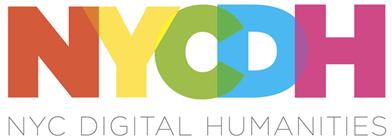Future Philologies: Digital Directions in Ancient World Text
April 20, 2018, 9:30am – 5:30pm at the Institute for the Study of the Ancient World
(15 E. 84th Street New York, NY)
https://diyclassics.github.io/future-philologies/
Register for this event: http://bit.ly/future-philologies-rsvp
Future Philologies will provide a forum for historical-language projects with strong text analysis and NLP components to present their work across language-specific barriers in an effort to foster cross-linguistic, comparative feedback, recommendations, criticism, etc. between projects. Moreover, it is meant to embrace the scope of ancient-world languages represented at ISAW, which states in its mission the goal of offering “an unshuttered view of antiquity across vast stretches of time and place.” The format will be presentations on the state of corpus/text analysis/NLP work for each language coupled with recent successes and immediate challenges to be addressed in the near future. Projects will represent Latin, Greek, Coptic, Arabic, Classical Chinese, and cuneiform languages among others. Researchers in Computer Science and Information Science who can offer different perspectives on philological and corpus-based language work have also been included.
Speakers include: Patrick J. Burns (ISAW), Caroline Schroeder (Pacific/Coptic Scriptorium), Gregory Crane (Tufts/Leipzig), Alexander Magidow (URI) and Yonatan Belinkov (MIT), Donald Sturgeon (Harvard), Émilie Pagé-Perron (Toronto/MTAAC), Kyle P. Johnson (Accenture/CLTK), David Mimno and Laure Thompson (Cornell), and David Smith (Northeastern).
Future Philologies is sponsored by the Institute for the Study of the Ancient World, NYU Center for the Humanities, NYU Division of Libraries, NYU Center for Ancient Studies, and NYU Department of Classics.
